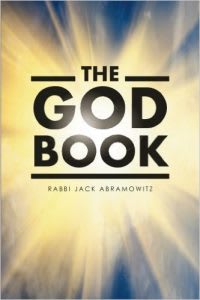3.10 - Predestination vs. Free Will
Chovos HaLevavos, Shaar HaAvodah chapter 8
************************************
There are numerous verses that address the issue of God’s control of the world and predestination. Among these:
- Whatever God desired, He performed, in Heaven and on Earth (Psalms 135:6);
- God causes death and causes life, He brings down to the grave and raises up. God causes poverty and He causes wealth, He causes one to be humbled and to be exalted (I Samuel 2:6-7);
- Who can speak and have it come to pass if God has not commanded it? Do not good and evil emanate from the word of the Most High? (Eicha 3:37-38);
- The One Who forms light and creates darkness; He makes peace and creates evil (Isaiah 45:7);
- If God doesn’t build a house, the builders toil in vain. If God doesn’t guard a city, the watchman stays awake in vain (Psalms 127:1);
- And many others.
These verses suggest that man is moved about by God. But other verses suggest that a person is imbued with free will to do as he pleases, with appropriate reward and punishment for his choices. Such verses include:
- Behold, I place before you today life and goodness, and death and evil (Deuteronomy 30:15);
- Choose life (Deuteronomy 30:19);
- This came about through your actions (Malachi 1:9);
- Because according to a person’s actions He will repay him (Job 34:11);
- The foolishness of a person perverts his way (Proverbs 19:3).
Everything we know from the Torah – especially the idea of reward and punishment for our actions – confirms that a person is responsible for his own actions and that God is not responsible for the good or evil that a person does.
Of course, it is difficult for a person to reconcile the ideas of free will and predestination – difficult, perhaps, but not impossible. We see that a person’s actions sometimes yield exactly what he desires and other times yield the exact opposite. This is because God also has a plan, and He permits a person to accomplish some things but not others. A person is rewarded or punished according to the decisions He makes but that doesn’t mean that God necessarily grants carte blanche for all of one’s choices to come to fruition.
Some people think that all human activity has been entrusted to mankind and that God has divested Himself of any control. Others think that any action that occurs in the universe is preordained by God. (Of course, this latter position raises the question of reward and punishment, i.e., how can one be held responsible for actions over which he has no control? Proponents of this theory respond that God is all-good so we just have to take for granted that He has that covered in some way we can’t understand.)
Still others take both sides: Everything is preordained by God and there’s reward and punishment. Whoever tries to understand this paradox, they say, is doomed to fail. Proponents of this position say that we should act as if we have free will because we will be rewarded and punished accordingly, but we should know that everything that happens for good or for bad only occurs because God decreed it.
Perhaps surprisingly, this last point of view is actually closest to reality. It’s good for us to acknowledge our inability to understand God’s ways. There’s a reason He hasn’t enlightened us in this matter. If it were in our best interest to grasp this paradox, God would have explained it to us. It’s like sunglasses – sometimes it’s better for us to perceive things through a filter. Just as we shouldn’t look directly at the sun because it’s beyond our eyes’ ability to process, it’s often better for us not to wrap our brains around every aspect of how God manages the universe. Some things are better with only a partial view.
Rabbeinu Bachaye goes on to describe various devices more familiar to his era than to ours: the astrolabe, which was used by astronomers and navigators to predict the positions of heavenly bodies and for triangulation; the balance, which could weigh many different objects – both large and small – using a single stone; and the upper millstone, which doesn’t sink in water and is set in motion by a relatively minor force. People would never believe such things were possible if they hadn’t seen them with their own eyes! (If this is the case with such relatively-simple devices, imagine what the Chovos HaLevavos would have had to say about the radio, the phonograph, photography or the Internet!) If we cannot take such mundane physical phenomena for granted without the evidence of our own eyes, how can we expect to grasp the most intricate secrets of the universe by sheer intuition? Regarding such esoteric matters, King David said, “God, my heart is not conceited and my eyes are not ambitious. I do not occupy myself with things too great or too wondrous for me” (Psalms 131:1).

 The God Book – now available from OU Press!
The God Book – now available from OU Press!